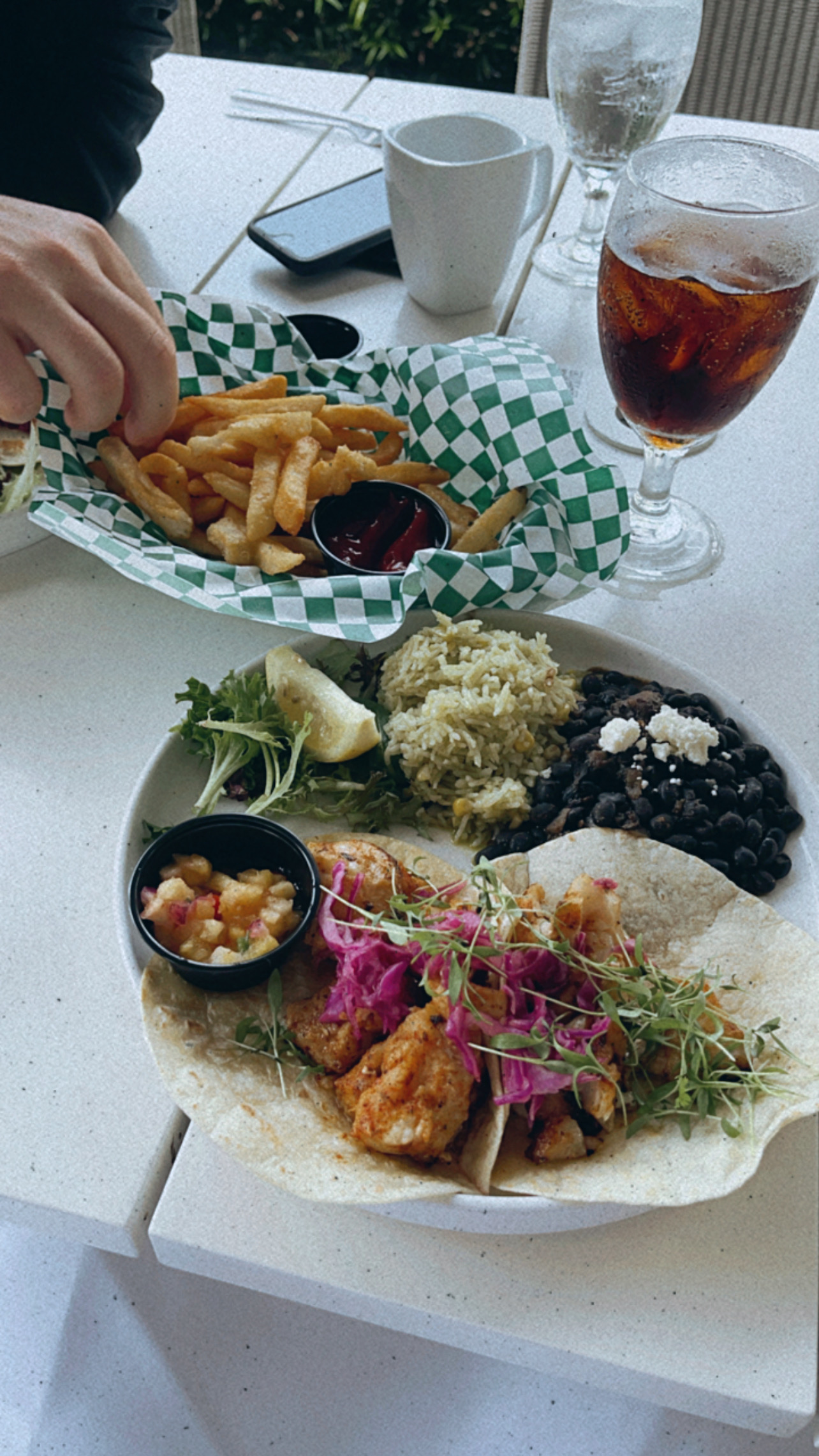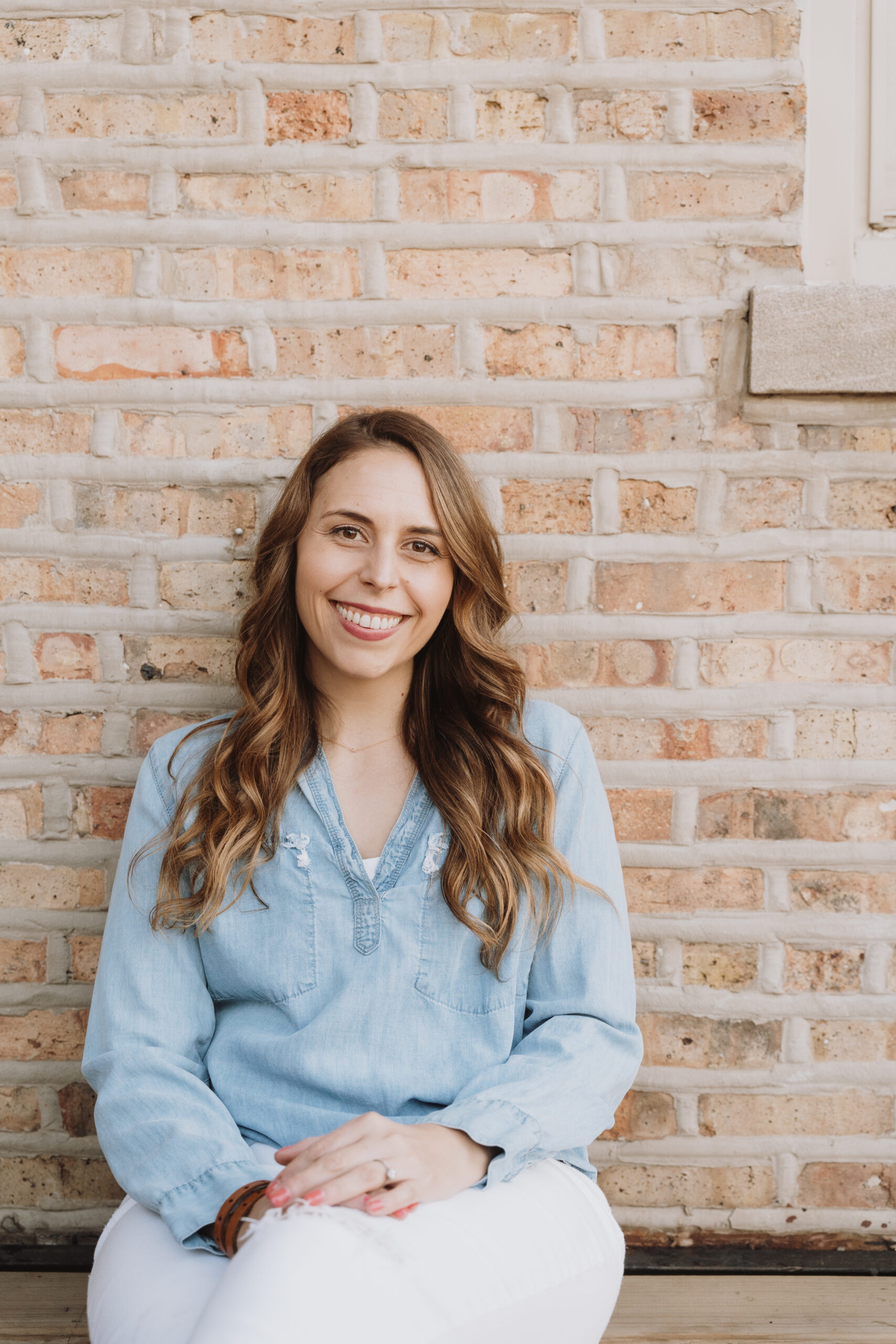Wasting food feels bad, right? No one likes it. Becoming okay with food waste isn’t about trying to waste food on purpose. If you can save it for later, definitely do. But what if you can’t save it? What do you do then? How do you stop eating when you’re already full but there’s still food on your plate?
This can be really hard, especially when the food is super tasty!
Here’s something to try next time you’re full but there’s still food left: say to yourself, “I can eat delicious food whenever I want. I don’t need to eat until I’m uncomfortably full right now.”
IMPORTANT This mantra might not work if:
- You’re not eating enough.
- You’re not letting yourself eat all kinds of food.
- You don’t feel good about your body.
- You started eating when you were too hungry.
- You’re judging yourself for what you just ate.
Did you read that list and think, “Well, there’s no hope for me then”? ✋ Hold on! We can work on this together. Many of my clients felt the same way at first, but with some focused food freedom work, things changed for them. Don’t believe me? Check out the successes from past clients below:




What I worked through with these clients is that when it comes to the fear of wasting food, there are five main triggers: FOMO, guilt, clean-plate club, money, and sustainability. Let’s unpack each one of these together
You’re Afraid of Missing Out
It’s possible the fear of food waste is because you feel sad when you stop eating while others are still enjoying their food. This fear also happens with leftovers because they don’t taste as good the next day. This isn’t about the food, this is about food being your main source of pleasure.
Tip Moving Forward: Practice finding other sources of pleasure outside of food. If you’re struggling with that, listen to this.
Guilt or Anxiety Gets You
If you’re worried others will judge you for not clearing your plate, it can cause you to eat to overly full just to avoid feeling judged or anxious. This isn’t about the food, this is about fear of judgment.
Tip Moving Forward: One way to help is by learning to handle these feelings, like practicing sitting with uncomfortable emotions and letting them pass.
You Learned to Always Clean Your Plate
Were you taught as a kid to finish everything on your plate? If yes, this is just a habit for you. This isn’t about the food, this is about disrupting a pattern.
Tip Moving Forward: Think about why you feel you must eat everything and write down your thoughts that come up with that. This can help you understand and change your eating habits.
You Think Wasting Food Is Wasting Money
Ooof one of the biggies!! You feel like throwing away food is like throwing away money right? Is it a waste though when you’re making a decision that is in your best interest? This isn’t about the food, this is about misguided values.
Tip Moving Forward: Instead, think of honoring your fullness, even if that means food has to get tossed, as investing in your health. How much money would you pay to improve your health? Think of it like that.
📌 Speaking about investing in your health, if you’re a perfectionist who struggles with binge eating and wants to quiet the food noise – click here!
You Care About those in Need
Your intentions are in the right place and eating everything to avoid waste doesn’t really help those in need. This isn’t about the food, this is about distorted thinking.
Tip Moving Forward: To help those in need donate to food banks, volunteer, or donate money. That is the best way to help those in need.
⭐️ EXTRA: If you struggle with wasting food because you legit did not have food growing up and food scarcity WAS a thing… be gentle with yourself. Remind yourself you CAN put it away for later. You CAN ask for a to-go box. You CAN ask to bring it home. In times you can’t save it or bring it home – you have a choice:
- Own the decision to keep eating and DO NOT judge yourself for feeling overly full if you do (you’re not doing anything wrong)
- Practice calming yourself down and repeating the mantra, “The food isn’t going away. I am safe. I am okay.”
Again, give yourself time with this. It is a lot easier said than done. There will be times when it feels easier to stop, and times when it’s hard. The less you judge and the more you let yourself learn, the faster you can honor your fullness despite what is left on your plate.
The Best Guided Journals To Start A Journaling Practice
Just so you know, I do review everything I recommend. When you buy through links on this page, we may earn a commission.
A widely acclaimed guided journal designed for daily gratitude and self-reflection. This journal prompts users to express gratitude, set positive intentions, and reflect on daily achievements, fostering a positive mindset.
“Start Where You Are: A Journal for Self-Exploration” by Meera Lee Patel
This beautifully illustrated guided journal encourages self-exploration through a series of thought-provoking prompts, creative exercises, and inspirational quotes. It’s a visually engaging journey of self-discovery.
“365 Days of Wonder: Mr. Browne’s Precepts” by R.J. Palacio
Inspired by the best-selling novel “Wonder,” this guided journal offers daily precepts, quotes, and prompts to encourage kindness, empathy, and reflection. It’s a heartwarming and insightful companion for personal growth.
Geared towards promoting mindfulness and reducing stress, this journal includes daily prompts for meditation, gratitude, and reflections on the present moment. It’s an ideal tool for those seeking a more centered and mindful lifestyle.
“Bullet Journal Method” by Ryder Carroll
While not a traditional guided journal, Ryder Carroll’s method has gained immense popularity. The Bullet Journal is a customizable organizational system that combines to-do lists, calendars, and reflections, offering a flexible and personalized approach to journaling. Click here for a bullet journal.
“The Artist’s Way Morning Pages Journal” by Julia Cameron
Based on Julia Cameron’s transformative book, “The Artist’s Way,” this journal encourages the practice of “morning pages” – three pages of longhand, stream-of-consciousness writing every morning. It’s a tool for unlocking creativity and overcoming creative blocks.
“52 Lists Project” by Moorea Seal
This guided journal provides a year’s worth of weekly list prompts designed to inspire self-reflection, gratitude, and personal growth. Each list is thoughtfully curated to explore different aspects of your life and goals.
Targeted at those seeking stress relief and emotional balance, this guided journal combines mindfulness exercises, prompts for self-reflection, and spaces for creative expression. It’s a holistic approach to calming the chaos in daily life.
Perfect for those who prefer a long-term commitment, this journal offers a daily question for five years, allowing users to track their thoughts and experiences over time. It’s a unique way to witness personal growth and changing perspectives.
Ryann Nicole
Licensed Therapist, Certified Nutritionist, and Virtual Wellness Coach
Ryann is a licensed therapist and virtual wellness coach who has assisted individuals worldwide in establishing a healthier relationship with food and their bodies.
Are You Ready to Heal Your Relationship With Food?
I understand—it can be overwhelming to figure out where to begin. Let's simplify things and have you start right here:
Why Am I Overeating?
First Steps To Stop Binge Eating
The Food Freedom Lab Podcast
FREE QUIZ
FREE GUIDE
Podcast
the food freedom lab podcast



